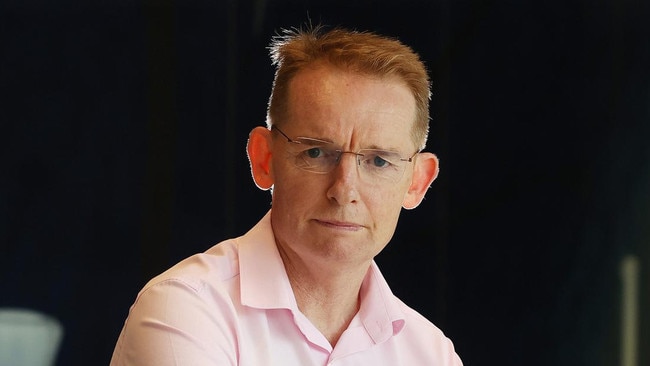Children deliberately misdiagnosed with autism so desperate families can access NDIS funding
Industry insiders say the NDIS has “incentivised diagnoses of autism”, with some children being deliberately misdiagnosed so desperate families can get funding.
QLD News
Don't miss out on the headlines from QLD News. Followed categories will be added to My News.
The NDIS has “incentivised diagnoses of autism”, with some children being deliberately misdiagnosed to get funding, industry insiders have explosively revealed.
Professor James Scott from the University of Queensland’s Child Health Research Centre said there was “certainly” children who don’t have autism being given a diagnosis for “the purposes of them accessing NDIS funding”.
“They do have other problems, developmental problems, but to access the NDIS funding they need to have level 2 autism, so suddenly we’ve had this huge spike in children with level 2 autism spectrum disorder, so people can access that extra support,” he said.
“You can’t blame them, because if they don’t have that diagnosis, they get nothing.”
Autism Queensland chief executive Pamela Macrossan said families and health practitioners were often desperate to get young patients help.
“It is understandable that a health professional recognises the dire need for support and they may choose a pathway where at least some support can be sourced,” Ms Macrossan said.
But she warned wrong diagnosis may lead to the wrong treatment.
“Other conditions such as severe childhood trauma may present with similar characteristics (to autism) – emotional outbursts, poor eating, withdrawal, difficulty with focus – but the treatments and outcomes are quite different,” she said.

Prof Scott said some practices entire business model was built around NDIS diagnoses.
“These families have to pay a couple of thousand dollars for these (diagnoses), and it is very hard to say to them: ‘Actually no, you don’t meet the criteria, sorry’,” he said.
Dr Jessica Paynter from Griffith University’s School of Applied Psychology and Autism Centre of Excellence said parents need to be well researched around funding before starting the NDIS journey.
“They may be offered a $5000 package and think it is great, not knowing their child’s required level of support will cost $40,000,” she said.
“But also to apply to access the NDIS in the first place, there needs to be medical evidence of the level of need or support required.
“This means either paying someone in private practice to do an assessment … which can involve up to $2000 out-of-pocket costs and more.
“Or the alternative is going for a public assessment, but there is a huge bottleneck there and the wait times can be as much as a couple of years.”
Psychologist Dr Tony Attwood, one of the world’s leading experts on autism and Asperger's syndrome, said the NDIS is a great idea, but it has teething problems that need reviewing.
“When the NDIS began, they didn’t realise how many autistic individuals would be eligible for funding … some people are definitely getting more funding than others,” he said.

This is an issue Ms Macrossan sees every day. She says apart from the actual diagnoses, factors such as where people live, if families have money for speedy private diagnoses, and if they are strong advocates can all play a pivotal role in securing funding.
“We have four regional Queensland centres and two centres in Brisbane, for example, and there is quite a difference in the NDIS packages of people coming through,” she said.
“Some people won’t even try to get an NDIS package because there are no service providers around them, particularly in rural areas.
“A family with one or two autistic children who are struggling just to get out of the house will find it much harder to fight for more funding, compared to a well-resourced family who can advocate for themselves.”
A Department of Social Services spokeswoman said the Commonwealth, states and territories are working together to design and fund extra supports for people with disability.
“Foundational supports, to be designed with significant community involvement, will enable people with disability, including children, to access the right supports, earlier and in the right place, to support them to have the best outcomes,” she said.
A National Disability Insurance Agency spokesman said access to the NDIS is still very much based on a person’s level of functional impairment.
“[Also] how their disability affects them in their everyday life. The NDIA makes all access and planning decisions based on all available evidence at the time, and in accordance with the NDIS Act.”
The NDIS Review published 26 recommendations in December last year. The Federal Government, together with states and territories, are currently considering the findings.
More Coverage
Originally published as Children deliberately misdiagnosed with autism so desperate families can access NDIS funding





